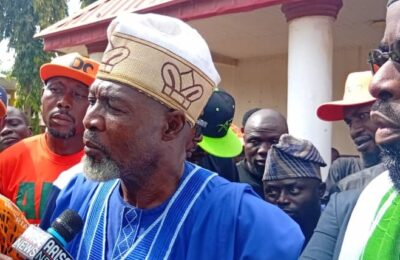By Musa Bakare.
Leadership is not measured by titles but by the leaders one produces. In this regard, Asiwaju Bola Ahmed Tinubu stands out as an exceptionally great leader in Nigeria’s political landscape, a builder of men, institutions, and enduring political structures.
When Asiwaju Tinubu governed Lagos between 1999 and 2007, he didn’t just appoint commissioners; he groomed leaders. Today, that investment has matured into one of the strongest and most enduring political networks in Nigeria’s history.
In a political culture where many leaders surround themselves with mediocrity, Asiwaju Tinubu deliberately builds capacity. That is why his political structure will remain unbroken even beyond 2031, because it is rooted in people, not propaganda.
Professor Yemi Osinbajo served as Asiwaju Tinubu’s Commissioner for Justice; he later became Vice President of the Federal Republic of Nigeria. Rauf Aregbesola was Commissioner for Works; he became Governor of Osun State and later Minister of Interior.
Babatunde Fashola, once Asiwaju’s Chief of Staff, became Governor of Lagos State and later Minister of Works and Housing. Akinwunmi Ambode, a former accountant under Asiwaju Tinubu, also became Governor of Lagos State.
Rt. Hon. James Abiodun Faleke, a loyal disciple of the Asiwaju school of political thought, served with Tinubu as Chairman of Ojodu LCDA. He is now a member of the Federal House of Representatives and Chairman, House Committee on Finance.
Babajide Sanwo-Olu, a Commissioner during Tinubu’s tenure, is the current Governor of Lagos State.
Femi Gbajabiamila, nurtured by Asiwaju Tinubu, rose from being a member of the House of Representatives to Speaker and now serves as Chief of Staff to the President.
Dr. Kayode Fayemi, another protégé, became Governor of Ekiti State, Minister, and Chairman of the Nigeria Governors’ Forum.
No other Nigerian leader, dead or alive has replicated this exceptional feat.
President Tinubu’s special genius lies in identifying talent early, mentoring it, and empowering it to excel. He does not fear bright minds; he cultivates them. He believes leadership should be institutional, not personal.
As 2027 approaches, one simple question remains:
Can any of those angling to take over from him boast of even one former commissioner or aide who is politically relevant today ?
The answer exposes the difference between a builder and a blamer, between a mentor and a manipulator and who passes what it takes to win the 2027 election
Asiwaju Bola Ahmed Tinubu is not just a political figure; he is a leadership institution. His legacy is written not only in policies and reforms but in people, capable men and women who now drive governance across Nigeria.
That is what makes him an exceptionally great leader, a leader whose vision reproduces itself in others. He is not merely governing; he has raised men who govern Nigeria now and will continue to do so in the years ahead.
– Musa Asiru Bakare, Member, All Progressives Congress (APC) and Political Analyst, writes from Lokoja, Kogi State.




